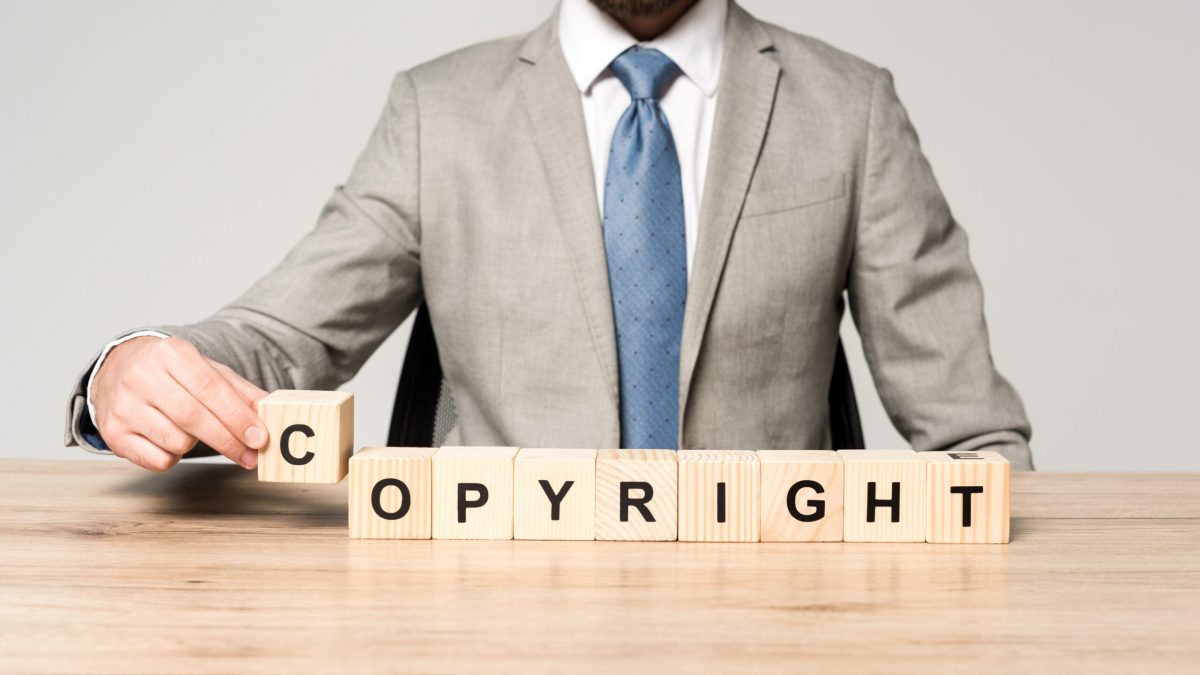Note: This blog was updated December 2024.
Have you gotten an email or form submission starting with “Your website or a website that your company hosts is violating the copyright protected images owned by myself”? It’s a scam. Don’t click the link.

The ‘Copyright Infringement’ Spam Scam Is Back. What You Need to Know
We see the following message – verbatim – every few months. It hits WordPress sites seemingly at random, usually through a contact form. The name used varies; one site yesterday received two identical messages from “two” “different” “copyright holders.”
The link purports to offer “evidence” of your copyright infringement. Instead, it contains a trojan that can be used to install ransomware or malware on your system.
In other words, if you get the following message, it is a scam. You have not committed copyright infringement.
Hello!
My name is Brittany. [Editor’s note: This is one of many fake names used. The “sender’s” name is not Brittany.]
Your website or a website that your company hosts is violating the copyright-protected images owned by myself.
Check out this doc with the URLs to my images you utilized at [your website] and my earlier publications to get the proof of my copyrights.
Download it right now and check this out for yourself:
[URL redacted; OMG, do not click things like this!]
I believe you have intentionally infringed my legal rights under 17 USC Sec. 101 et seq. and could possibly be liable for statutory damages of up to $120,000 as set-forth in Sec. 504(c)(2) of the Digital Millennium Copyright Act (”DMCA”) therein.
This message is official notice. I demand the removal of the infringing materials mentioned above. Please take note as a service provider, the Digital Millennium Copyright Act requires you, to remove and/or terminate access to the infringing content upon receipt of this letter. In case you do not cease the use of the previously mentioned infringing content a court action will likely be commenced against you.
I have a strong belief that use of the copyrighted materials mentioned above as allegedly infringing is not approved by the copyright owner, its legal agent, or the law.
I declare, under consequence of perjury, that the information in this notification is correct and that I am the legal copyright proprietor or am authorized to act on behalf of the proprietor of an exclusive right that is allegedly infringed.
Identifying Scams Like These
How do we know this is a phishing scam?
First of all, the “claim” of copyright infringement is incredibly vague. We’ve seen copyrighted images unintentionally used in the past, and notices come from attorneys, or are super specific. “Hey, on this page you used this image.”
Second, this is a dubious use of DMCA – scary-sounding “legal” language. See the part about $120,000 in damages as “set-forth” (not a word) in Sec. 504(c)(2)? That’s actually $150,000. Do your homework, scammers. (It seems that this amount varies in various versions of the scheme, FWIW.)
Note, too, the last paragraph. This fake person is either the copyright “proprietor” or someone authorized to work on their behalf. Always sad to see a scammer with an identity crisis.
Finally, there’s the fact that this links to a consumer-grade file storage server. Never, ever, ever – ever – click a link like this in an unsolicited message. Just assume it’s a scam.
Who the DMCA Notice ‘Comes From’
Looking at analytics of this post, we’re seeing users searching for similar messages spoofed from:
- Netsuite
- Mailchimp
- Freshbooks
- HubSpot
- Zoho
- Slack
- Trello
The fake message is usually phrased as coming from “[Company Name], Inc.” So, “Netsuite, Inc.”
These are real companies, with real lawyers. They wouldn’t send you the amateur hour message above. This is a scam. Do not click the link.
What You Can Do
Honestly, stuff like this is out there. And the particularly pernicious part is that these scammers have started to use website contact forms, rather than cold email, to ensure they end up in an inbox. (Looking at you, “Secret Weapon” form spammers who won’t leave us alone.) These jerks’ hope is that their message ends up on the screen of someone without much online experience, giving them free rein to extract a ransom or access your private data.
Big picture? Ignore it. Copyright infringement – particularly with images – does happen. It’s usually a mistake, and folks pointing it out are typically pretty reasonable. But they’ll either go through a lawyer or reach out specifically. They don’t go about it like this.
The FTC lets you report suspected fraud at reportfraud.ftc.gov. If you get this particular “DMCA notice” in email or your contact form, please consider letting them know.
If You Clicked the Link …
Don’t download the file.
If You Downloaded the File …
Close this post and call your IT team.
Now.
TL;DR
If you get a message with “Your website or a website that your company hosts is violating the copyright-protected images owned by myself” in your inbox, you have not committed copyright infringement. They are attempting to place malware or ransomware on your machine. Do not click the link.



